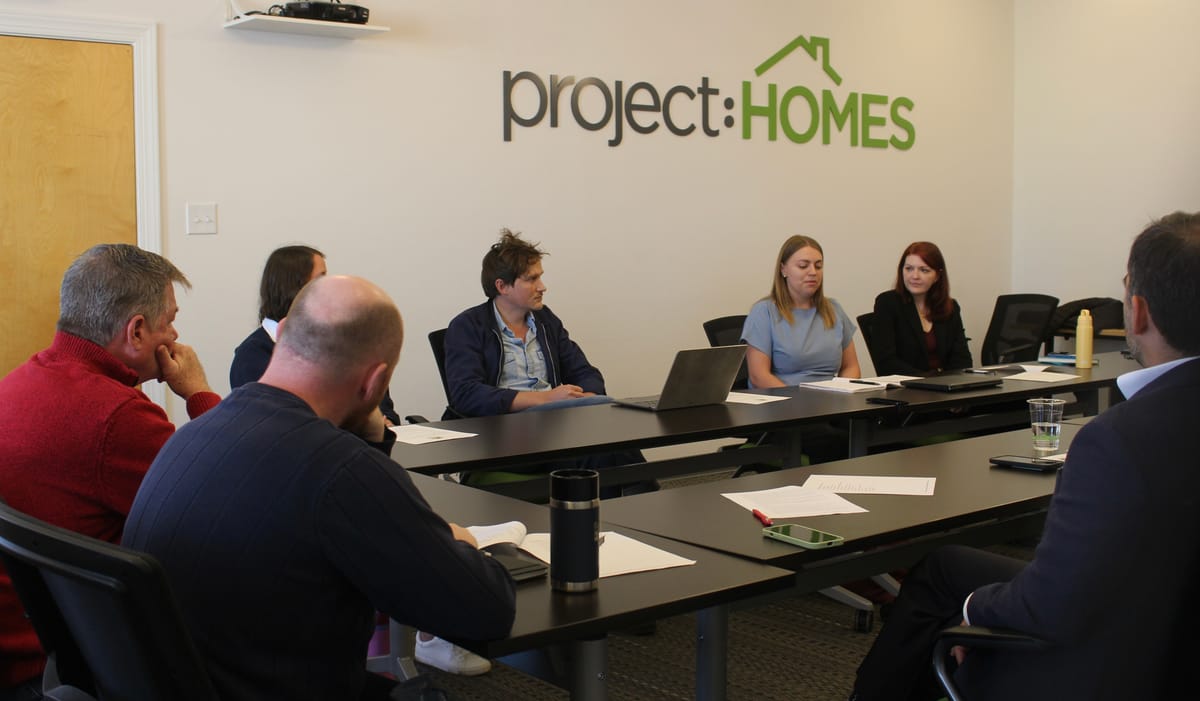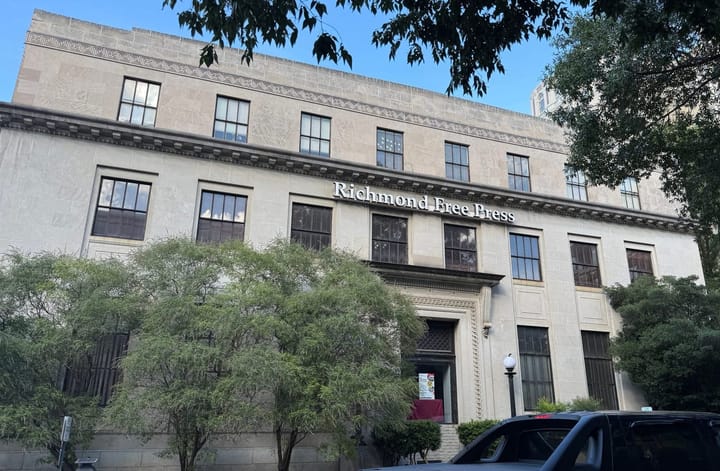Affordable housing and other nonprofits launch campaign in support of zoning code changes

A coalition including many of Richmond’s most active affordable housing developers has launched a campaign in support of the city’s ongoing effort to overhaul its 1970s-era zoning code.
Backers of the “Homes for All Our Neighbors” campaign include nonprofits project:HOMES, Richmond Metro Habitat for Humanity, the Better Housing Coalition and Maggie Walker Community Land Trust, all of whom are involved in constructing affordable units, as well as other nonprofits like Housing Opportunities Made Equal (HOME), the Partnership for Housing Affordability, Southside ReLeaf and RVA YIMBY.
“To get more people into houses, you need to build more densely,” said Lauren Marshall, director of communications for Richmond Metro Habitat for Humanity.
The public launch of the new coalition Monday marked the most significant emergence of a pro-refresh group since the city rolled out the first draft maps this spring of how Richmond could be rezoned under the new code.
A second draft map is expected to be released Nov. 19. But in the meantime, the first proposal has sparked sharp criticism from numerous neighborhood associations and some residents concerned that the changes will usher in sweeping development that will permanently alter the character of their communities.
Members of the new coalition, however, argue the refresh could help alleviate some of the costs and difficulty of developing affordable housing in a city where almost one-fifth of residents live below the poverty line.
“We’ve developed over 300 single family homes in the city since we started,” said Marion Cake, vice president of affordable housing for project:HOMES, during a roundtable held by the group. “And we have struggled with the zoning overlay that was done in the 1970s to do that.”
In particular, affordable developers have pointed to lot width and single family restrictions that have meant most duplex proposals or those involving parcels less than 50 feet wide have had to go through a lengthy — and costly — special use permit process requiring extra review and public hearings before the Planning Commission and City Council.
“That adds six months to a year in development time and thousands of dollars to each project,” said Cake. “So it has a direct impact on affordability of the housing that we are trying to do.”
Laura Dobbs, director of policy for HOME, said changes are also critical to keep step with evolving household characteristics.
“Eighty percent of American households are not nuclear families anymore,” she said. In an email to The Richmonder, she cited a study showing 72% of the nation's housing stock is designed for nuclear families.
Several coalition members on Monday were adamant that the group is not offering blanket support for any code refresh proposal but will only back an overhaul that encourages “equitable” development across all neighborhoods and includes measures to reduce displacement.
Many framed their view of the rezoning push as an effort to repair past harms stemming from segregation and racial injustice.
“Richmond’s legacy of segregation means some neighborhoods have absorbed development pressure while others have been protected,” a release from the group outlining its stance states. “If code refresh takes a truly citywide approach, we can ensure all neighborhoods contribute to solving our housing shortage, rather than asking a few to shoulder the entire effort.”
In line with that goal, the group is supporting one of the most controversial initiatives of the current draft: allowing two housing units on a single parcel in all residential districts by right, in addition to an accessory dwelling unit allowed by City Council under a 2023 zoning change.
So-called duplex proposals have been a ripe target for lawsuits across the country. Critics say that by effectively eliminating single family zoning, allowing two units by right on one parcel significantly changes the character of a neighborhood. Supporters meanwhile have argued that the approach offers “gentle increases in density” because many property owners never construct a second unit.
Members of the coalition have said allowing duplexes by right ensures density increases won’t only occur in Richmond’s lowest-income neighborhoods.
“One thing that I hope to see is making sure that these opportunities for denser housing are across the whole city, and that certain neighborhoods aren’t opting out because they want to maintain their single-family status in a way that nobody else has the option to opt out of,” said Carolyn Pugh of the Community Climate Collaborative.
Preventing displacement is another key priority of the group, which on Monday listed a variety of approaches the city could take to keep lower-income households from being pushed out of the city due to rising tax assessments.
Those included protective overlays for neighborhoods with high displacement risk — an approach Charlottesville adopted in its recent and disputed zoning overhaul — and pushing the state for more power to mandate affordable units in development projects.
Annika Schunn, a housing policy advocate with HOME, said the code refresh and anti-displacement efforts can go “hand-in-hand.”
“Missing middle housing and duplexes by right is itself a displacement mitigation strategy,” she said. “We really do not see these things as being in opposition to each other.”
Contact Reporter Sarah Vogelsong at svogelsong@richmonder.org. This article has been updated to reflect a follow-up email from HOME providing statistics on housing stock for nuclear families.






